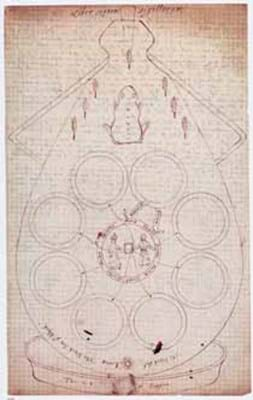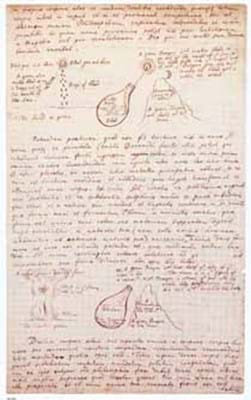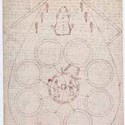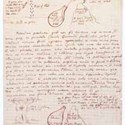They did, however, reflect the extraordinary range of his studies and represent the only Newton papers of those sold from the Portsmouth collection in 1936 ever likely to come back to the open market. Most of what was sold then by Sotheby's has ended up in institutional libraries, as did the cache of Newton papers from the Macclesfield library, an important collection for which Sotheby's arranged a private sale to Cambridge University in 2000.
Newton's papers passed at his death to the family of his niece, whose daughter married into the family of the Earls of Portsmouth, but in the 1880s, when Cambridge acquired so much of the Portsmouth archive, papers concerning his theological and alchemical obsessions were seen as something of an embarassment. Newton's theological 'bees in the bonnet' still have limited appeal and one job lot of manuscripts and fragments relating to his beliefs and researches that had been valued at $300,000-500,000 was among the lots left unsold. However, since that 1936 sale, interest in his extensive reading and research into the literature of alchemy has increased and an eight-page fragment of manuscript dealing with the troublesome subject of transmutation was sold for $410,000 (£213,200).
Incorporating one full page drawing, entitled The Book of the Seven Seals and featuring a toad that is a reference to gold, together with18 smaller figures or diagrams (see ilustrations right) the manuscript is certainly linked to and may, in part, be copied from one of the celebrated scrolls compiled by George Ripley (c.1415-95). He was an Augustian Canon of Bridlington, a renowned alchemist and the author of several English verse works on alchemy that were much circulated and read in the 17th century. The BL, the Bodleian, the Wellcome and the Fitzwilliam all hold examples of Ripley's alchemical scrolls, and another was sold to a collector at Sotheby's in December 2000 for £180,000, though at that time it was unattributed and undervalued.
These Newton papers were acquired at the 1936 sale by a Paris bookseller, Emmanuel Fabius, and remained, unseen, in his private collections until his death in 1984, but were later sold en bloc to the Sotheby's vendor.
Sir Isaac Newton and the trouble with transmutation…
The small group of Sir Isaac Newton’s manuscripts and papers offered by Sotheby’s New York on December 3 were not for the most part concerned with the work that will forever ensure his fame – although an autograph draft of a letter concerning the presentation of six copies of the 1726, third edition of the Principia to the Académie Royale des Sciences sold at $28,000 (£14,560).








